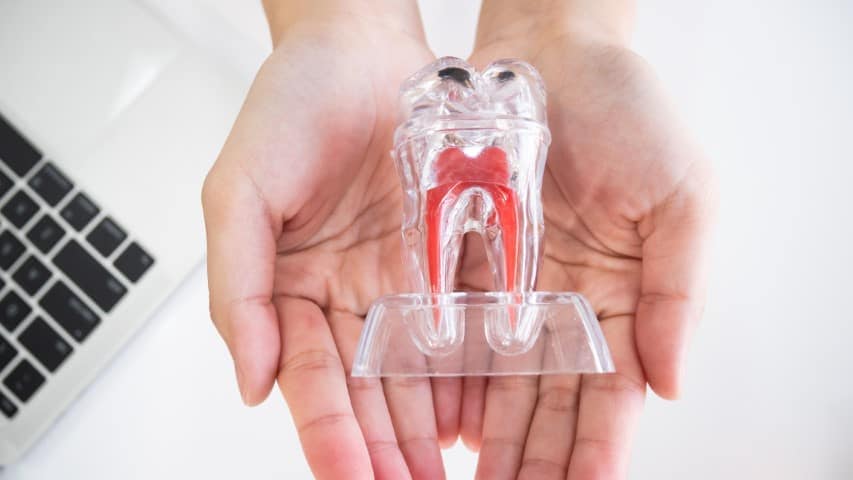National Root Canal Appreciation Day
May 11th is National Root Canal Appreciation Day! A root canal is a procedure in which an infected tooth is cleaned and sealed to prevent further infection from developing. Root canals save patients from losing their teeth each year, and they help repair nerve damage. Take some time today for some extra thought about your oral health. Commemorate National Root Canal Appreciation Day by learning more about the history of the treatment and prevention methods.
Root Canal: What Is It?
Dentists all over the world evaluate patients with all kinds of dental issues: toothaches, broken teeth, gum care, teeth extractions, and many more. One of the most common procedures that dentists, especially endodontists, perform is a root canal. Root canals are not a scary subject; they are essential to save a tooth that is severely infected. They also can protect surrounding teeth from excessive strain while relieving pain at the same time. Although many speculate that root canal treatments are painful, with the modern advances and technologies that dentistry has developed, they are no more painful than a normal filling. Root canal therapy is necessary when an infection from an untreated cavity travels all the way to the pulp. At this point, the body cannot heal the infection on its own, and ignoring the pain or taking painkillers will not resolve the problem, either. The term “root canal” refers to the passages within the tooth between the pulp and tooth roots that contain nerves and blood cells. Whenever the pulp of the tooth becomes infected, standard procedure is to eliminate the infection by removing the nerve and infected pulp within the tooth. The cleaning inside of the tooth and the following sealing is referred to as a root canal. This process can save teeth that otherwise would need to be extracted, and is a common procedure that positively influences the oral health of millions of patients.
How A Root Canal Is Performed
A root canal is essentially a four-step process involving one to two office visits. The dentist or endodontist will first administer local anesthesia to the affected area to numb the tooth. After the tooth is numb, the dentist might insert a dental dam, which is a small sheet of rubber that isolates the tooth to keep it clean and dry during the procedure. The dentist will then enter the tooth by drilling an opening in the top of the tooth, and then clear away the damaged/diseased pulp from the inside of the tooth. He/she may irrigate the tooth chamber, as well, to wash out any remaining pulp, and insert an antimicrobial solution to kill any remaining bacteria. Once the chamber is cleaned out, the dentist will then fill it until a permanent crown can be placed. A crown is used for restoration because it is stronger than natural tooth enamel and best preserves the integrity of the tooth.
Signs That You Need A Root Canal
Just because you are having tooth pain does not mean that you need a root canal, but pain is one sign that your tooth may be infected. Some other symptoms of infection include sensitivity to hot/cold foods and drinks, swelling, pain when biting, and a bad taste in the mouth. Sensitive teeth are an important sign that harmful bacteria are getting into the nerves of the jaw and need to be removed. Occasionally, some patients never show any signs of infection until their routine checkup whenever it’s discovered that something is out of the ordinary. As soon as you begin to feel pain in one of your teeth or if something seems different, make sure to schedule an appointment with your dentist as soon as you can.
What To Expect After Your Procedure
Most patients can immediately feel a lessening of their pain after their root canal procedure. Although the pain may not be entirely gone, the relief that a finished root canal brings is satisfying and long-lasting. There may be some pain afterwards, but most can be remedied with over-the-counter medications that can be bought at your local drug store. For those patients who are still waiting for their permanent filling or crown, make sure to avoid chewing on the treated tooth to prevent any avoidable damage or pain until treatment is completed. Continue to brush and floss regularly, and swish with warm salt water to relieve inflammation.
If you’re suffering from a problem tooth, call York Hill Endodontics at 416-781-5251! Our talented team is dedicated to your oral health and is ready to help you get the beautiful smile that you deserve!
Article originally appeared at: https://www.broomfielddentists.com/
Author: Broomfield Dentists



